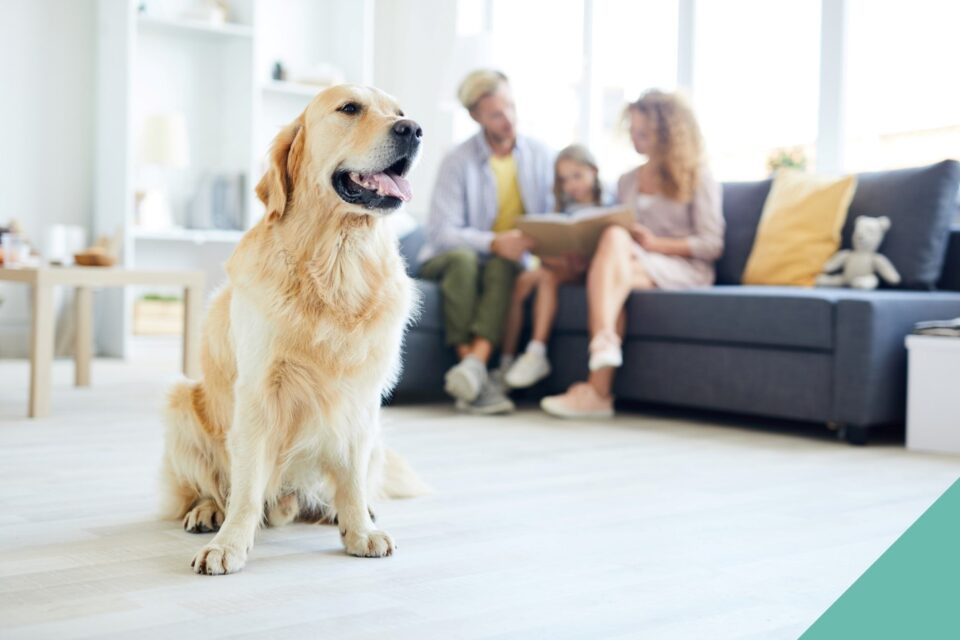
The end of the summer holidays brings with it another change in home life for our pets in West Yorkshire. When considering this change, we could put them in one of two camps: those looking forward to the peace and quiet and those dreading not being with us 24/7.
If your pet falls into the first category, they’ll probably resume their daily napping schedule quite happily. The pets (mostly dogs) who might struggle are those who rely heavily on contact with us in order to feel secure. Young dogs and puppies, who have never been left at home, might also feel anxious when children go back to school or you return to work.
What is separation anxiety?
Most dogs learn at an early age that when we leave the house, we’ll always return. Knowing this helps them to feel secure when they’re alone. Some dogs can be more susceptible to separation anxiety than others.
Some dogs when left alone might express their anxiety by behaving inappropriately, some may become destructive and chew household items or furniture; others become very vocal and bark or whine continuously until we return home. Not only is this distressing for our dogs but it’s annoying for our neighbours too!
There are a few things we can do now to prepare our pets for these significant changes in home life.
Encourage independence
We can teach our pets to feel secure when we’re out by gradually spending longer periods of time away from them when we’re at home. You can try the following:
- Spend time in a different room from your dog and gradually increase the length of time you’re apart. Don’t fuss your dog when you leave or when you return. By staying calm you’re signalling to your dog that it’s no big deal for them to spend time alone.
- Encourage your dog to explore your garden, or outside space, alone.
- Make sure your dog takes naps in its own bed and is not always next to you.
- If you always leave your dog in the same room or area, use these spaces during daily family life. Your dog will be less worried about being left in a familiar space.
- Introduce interesting toys (such as food-filled chews) to your dog when you’re at home. Lengthen the time your dog has access to these ‘special’ toys while you gradually move away to other parts of your home. The benefits of this are twofold; your dog’s focus is directed away from you and the action of chewing is something that relaxes most dogs.
Build resilience
If your dog is particularly attached to one person, it’s a good idea to share the load of their daily care. This helps your dog to feel secure even when their favourite person isn’t at home. Ask other family members to become involved with your dog’s feeding, walking, snuggling, and playtimes.
Your dog will gradually learn to feel safe with whoever they’re spending time with.
Puppies
If you have a puppy or young dog, introduce them to places that you may not have visited before. The more smells, sights and sounds your dog experiences as a youngster, the less they’ll fear as an adult dog.
Please contact us to ensure your puppy has received the vaccinations and preventative healthcare they need, to keep them safe when they start going out.
How can we help cats?
For the vast majority of adult cats, their life during periods such as summer holidays probably isn’t massively different to their usual routine. They may feel more inconvenienced by extra attention from their humans, but many cats will avoid this by seeking out new sunbathing, hiding, and sleeping places!
If your cat has spent more time indoors, it’s worth checking they’re up to date with their preventative healthcare before they go outside again. We can provide you with your cat’s usual flea and worm treatments, so please let us know if you’ve run out. We’ll also contact you when your cat is due for a check-up and booster.
All pets
It will take all of us some time to get used to changes to our daily routine. If your pets have enjoyed lie-ins and late nights recently, it’s helpful to resume your usual routine before you go back to work and school.
If you’d like further information about any aspect of preparing your pet for home life changes, please contact us for a chat.


News